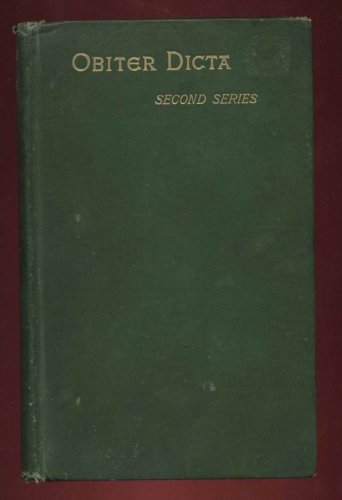The latin expression “obiter dicta” means “by the way”. It is a collateral remark made by a Judge in the reasons for judgment. It is a “side remark” or “comment”. It is not part of the actual decision. It is a “passing statement” or “observation”.
The essential part of the judgment is called the “ratio decidendi”. Anything else, which is non-essential is part of the “obiter dicta” or “obiter” for short.
When analyzing a court decision, it is important to distinguish between:
1) ratio decidendi, the essential, and
2) obiter dicta, the non-essential.
It is only the ratio decidendi of the decision which is binding as a precedent in terms of other Courts in accordance with the legal principle of “stare decisis”.
A judge may feel an obligation to offer a comment for the guidance of other litigants in other legal proceedings. In such cases, using obiter dicta is a welcome opportunity. No one had to pay for the litigation that resulted in the judge’s opinion. That is often a gratuitous expression of the law, frequently provided by a pre-eminent jurist.
Bora Laskin, Oliver Wendell Holmes, and Lord Denning all made ample use of the opportunity to express their thoughts, views and opinions on matters they thought were important, even if it were not specifically necessary in terms of the case before them.
Obiter by any one of these Judges was just like gospel. If it’s not the law now, beware, it’s going to be the law!
By the way, just as an unrelated side comment, the legal newspaper published by the students at Osgoode Hall Law School in Toronto is called “Obiter Dicta.”
Brian Madigan LL.B., Broker

